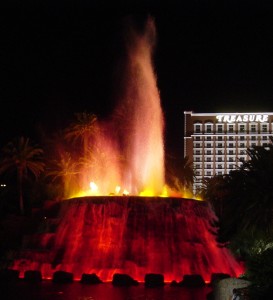 Most people that recognize the name JP Morgan associate him as a pioneer in the banking and investment business. One of the most powerful men in the world as we entered the twentieth century, he is less known for his partnership with Thomas Edison and involvement in creating the Power Industry.
Most people that recognize the name JP Morgan associate him as a pioneer in the banking and investment business. One of the most powerful men in the world as we entered the twentieth century, he is less known for his partnership with Thomas Edison and involvement in creating the Power Industry.
We all know that Edison invented the light bulb. Few know that it was Morgan’s partnering with Edison and financial backing that launched the power industry and eventually the creation of General Electric. Morgan’s residence was the first in the world to be powered by DC power and the era of electricity was born.
Morgan, John D Rockefeller, Cornelius Vanderbilt and Andrew Carnegie arguably ran the country and influenced the world with the power that they held during the back half of the nineteenth century. The study of these four men reveals countless lessons in business and leadership.
Morgan’s involvement with the power industry and the introduction of electricity to the public provides some powerful lessons in success and leadership.
TIMING
Morgan recognized that Edison’s light bulb and DC power could revolutionize the modern world and he partnered with him to start the era of electricity. Recognizing that Tesla’s AC power was going to be the type of power that would be used over Edison’s DC power, Morgan ended his relationship with Edison and eventually created General Electric which continues to be a leader in the Industry today. The timeliness of Morgan’s decisions helped him to stay at the front of the power revolution. Many difficult decisions needed to be made along the way. Timing was everything.
VISION
Even though Rockefeller’s kerosene had been lighting up America’s businesses and homes, Morgan had the vision to see that electricity was the future. He again recognized that Tesla’s alternating current would be the future over Edison’s direct current. Without that vision, Morgan may have stayed with Edison and missed the opportunity to stay on top of the industry.
COURAGE
Morgan’s father Junius had amassed a fortune by re-organizing existing businesses for a greater cause and opposed JP’s entry into a new market. Morgan, in an effort to make a name for himself, had to go against his father and a history of success by venturing into unknown territory risking everything he had on this new concept of electricity.
PERSEVERANCE
Morgan had several setbacks along the way and always had the option to simply go back to running business the way his father had taught him. But Morgan was determined to make a name for himself and stay one of the most powerful men in the world. He repeatedly discharged the notion of why he couldn’t do something and focused on how he could do it.
ABUNDANCE
Late in his life, Morgan along with his contemporaries Rockefeller and Carnegie, understood that power was not all about money and that influence provided as much or more power than your net worth. His financial support of religion and culture helped pave the road for the idea of philanthropy in the United States and he, along with Carnegie and Rockefeller began a new battle – not who could have the most or control the most, but who could give the most away.
Today the names of Trump, Gates, Buffett and Knight are used when discussing great business leaders. Although the business icons from over a century ago are often criticized for the monopolies they ran and the way they, at times acquired their wealth, it can’t be denied that they wrote the book on doing business in the modern era.
Leadership is not always about the bottom line. Nor is it about the way “things have always been done.” To be a great leader today, you can’t just do what is expected, you need to do more. Sometimes more is somewhere no one has been before. Where are you willing to go as a leader?
***********************************************************************
Don’t miss a single post from Building What Matters by subscribing at the top left of this page.
Help support us by clicking here and Liking our facebook page
Barry Smith www.buildingwhatmatters.com 2/4/13 photo by author

